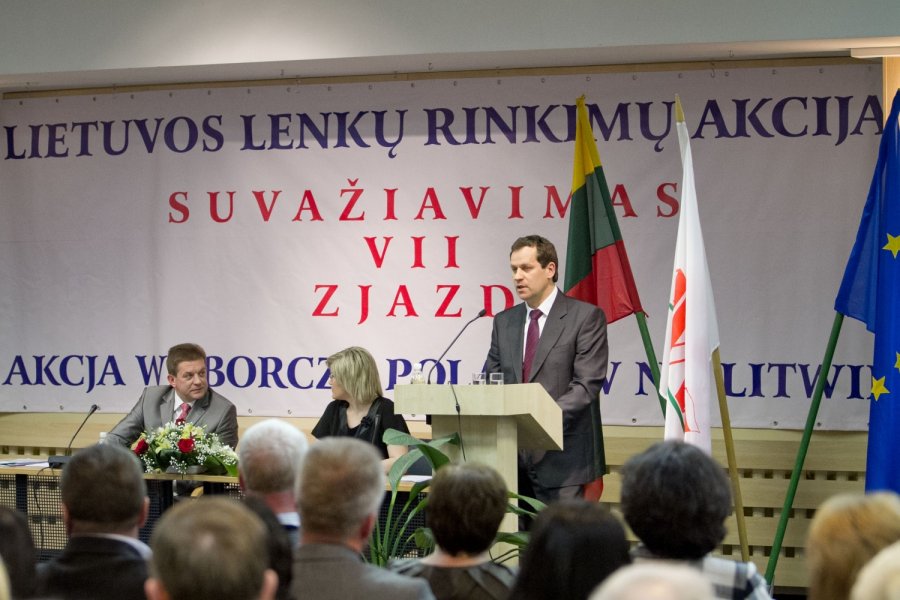
Views: 2935
The Conservative party released its plan to scrap the Human Rights Act if it won the General Election. Secretary of State Chris Grayling said they’d also be prepared to withdraw from the European Convention on Human Rights, unless they were allowed to veto judgements from the European Court of Human Rights (ECHR).
They won and the plan is going ahead.
Included in the Human Rights Act are fundamental rights and freedoms that all individuals within the UK have access to – such as the right to life, the freedom from torture and inhuman or degrading treatment, and the right to a fair trial. But those rights extend much deeper than most people think.
After World War II, the UK was instrumental in devising a list of rights – along with representatives from the 47 other countries that comprise the United Nations – that everybody across the world should enjoy. This became the Universal Declaration of Human Rights, which was created with the aim of never letting the atrocities of the Second World War happen again. A few years later, these rights were used to form the basis of the European Convention of Human Rights, which was drafted by the Council of Europe – the continent’s 47-strong human rights watchdog. This was led by a British MP and lawyer. This led to the establishment of the European Court of Human Rights in Strasbourg and gave ordinary people a legal framework to work within, if they felt their rights had been violated.
to form the basis of the European Convention of Human Rights, which was drafted by the Council of Europe – the continent’s 47-strong human rights watchdog. This was led by a British MP and lawyer. This led to the establishment of the European Court of Human Rights in Strasbourg and gave ordinary people a legal framework to work within, if they felt their rights had been violated.
Amnesty said “Any attack on the Human Rights Act poses a real threat to the freedoms we enjoy in this country – it must be defended.”
“Human rights are for everyone,” explains Sanchita Hosali, deputy director at the British Institute of Human Rights (BIHR). “They’re not only for certain groups. They protect all of us. Relating human rights to specific groups is wrong. They’re for everyone. They’re for the people we like and the people we don’t like – that’s what it means to live in a democratic society where we have a rule of law and we have respect for life.”
The Act helps us hold the government to account. Without it, the government would be free to do as it pleased. And it is doing exactly that – doing as it pleases
In the speech launching the party’s manifesto, David Cameron made it clear that he isn’t worried about anything as petty as civil liberties. He said: “Other parties might be wary of causing offence, or of being criticised by those who see every single measure as an affront to their civil liberties.” That’s why he is promising to dismantle the powers of the individual against the state – something he’s been working on for the last five years, such as through cuts to legal aid, making the right to a fair trial something only for those who can afford it.
Now, workplace rights are under threat as well. Unite, the workers union urged the government just last week to abandon its Trade Union bill, warning that the legislation heralds a new era of divisive industrial relations ill-befitting a modern economy. Further, it would tilt power in an increasingly unequal Britain still further towards the rich and big business.
Condemned as ‘not fit for purpose’ by its own advisors, the bill has attracted widespread criticism from human rights’ organisations saying it will contaminate decades of work to improve industrial relations, forcing employers and trade unions into longer, more bitter disputes.
Meanwhile, the state has become more pervasive than ever when it comes to policing, therefore advancing its agenda. The Metropolitan Police claim an investigation into the possibility of prosecuting journalists for their role in publishing secrets leaked by Edward Snowden will be kept secret. The revelation that information won’t be disclosed due to a “possibility of increased threat of terrorist activity” follows the relentless demands for information from journalists at The Intercept.
In July 2013 GCHQ turned up at The Guardian’s HQ and demanded the complete destruction of hard-drives that may contain any of Edwards Snowden’s encrypted files. As The Guardian themselves said “This extraordinary moment was half pantomime, half Stasi. But it was not yet the high tide of British official heavy-handedness. That was still to come”.
Julian Assang has never been charged in Sweden or the UK. The US Department of Justice is trying to prosecute him for “espionage”. This is the reason he was given asylum by Ecuador. He has been confined to the premises of Ecuador’s embassy in London, unable to see his family, because the UK refuse him safe passage to Ecuador. Julian Assange, like Edward Snowden is a whistleblower and there is no evidence that either divulged state secrets that we didn’t need to know. Policing the embassy costs £10,000 a day. And their human rights?
Straight after the Conservative election in May some who attended demonstrations against more austerity accused police of using violent tactics and of keeping peaceful protesters and even tourists caught up in the melee “kettled” for several hours.
“I have never experienced such extreme force of police violence,” said Daphne Wikken. “For me what is particularly scary is the fact that the government is already cracking down on dissent so badly just days after the general election.”
Staffordshire Police were accused of making a “heavy-handed” intervention during a protest outside an Israeli arms factory organized to mark the anniversary of last year’s Gaza conflict. An activist with London Palestine Action, told RT that the demonstration was meant to be a “fun, creative” experience, but was met with “aggressive and forceful police tactics.”
Everyone has the right to freedom of peaceful assembly. This is a right closely linked to the right to freedom of expression. It provides a means for public expression and is one of the foundations of a democratic society. Or it used to be.
In Britain today, members of student unions are being told to sign gagging orders preventing any public criticism of the university. In other incidents student are threatened with the police for even taking about a protest and are arrested for being in one.
Where universities were historically places of free expression, for students, that now comes in the form of a crackdown on dissent.
Of course dissent is something that Britain’s home secretary, Theresa May, is an expert on. She recently won the backing of MPs for her controversial plan to strip British terror suspects of their UK passports. One should mention the salient word ‘suspected’.
Meanwhile, May insists that the UK isn’t a surveillance state, but she can’t tell you why, because revealing the secrets of the UK surveillance state might put the public at risk! She’s been pushing strongly for outlawing thought crimes, which would allow her to prevent people from sharing their views on the internet or at events, if she deems them to inappropriate. With new laws being enacted through parliament, if government doesn’t like you or what you believe, you will be silenced.
It is terrifying to read Theresa May’s speech delivered to the Metropolitan Police’s counter-terrorism conference. Given the audience, perhaps it shouldn’t be too surprising that May would go off the deep end of Orwellian absurdity.
“Time and again we are seeing what we are now up against: the powerful allure of propaganda pumped out by ISIL and others to recruit and brainwash British men and women, the access social media and modern communications give terrorists to vulnerable people, and the desire of those terrorists to poison others against our values and our way of life”.
At the end of the speech, she says that the best way to counter this threat is to highlight the “positive vision” of the UK and its “values.”
 The idea that the way to counter Isis and its on-line propaganda through censorship, surveillance, threats, arrests and stripping citizens of passports, rather than direct engagement seems to confuse the message of claiming the UK is about “values”, freedom and democracy.
The idea that the way to counter Isis and its on-line propaganda through censorship, surveillance, threats, arrests and stripping citizens of passports, rather than direct engagement seems to confuse the message of claiming the UK is about “values”, freedom and democracy.
The Conservative party is promising to strip us of our freedoms and our rights, promising to snoop, investigate and scrutinise our lives in minute detail and crack down on non-violent protest and on the speakers allowed in colleges and universities.
The remaining ability of those on low or middle incomes to access legal rights and services are plainly being stripped away.
This crack-down extends to the broadcasters.
The definition of non-violent extremism will likely be formulated according to Theresa May’s assessment of ‘British values’. Suddenly, the home secretary is wielding a de-facto veto over who may appear in British current affairs programmes. Where would this end? Anti-terrorism laws brought in by labour 15 years ago are now being used to hunt down unpaid speeding and parking fines, dog fouling and even under age sun-bed use and smoking bans.
She is planning on granting herself powers to tell places of learning who they may or may not invite to speak. Amid the crisis of free speech on campus – both from students themselves and from authorities – the government’s only response is to worsen the situation and join the ranks of those who would limit thought and debate.
We have just witnessed Britain’s first cases of extra-judicial assassinations – irrespective of your thoughts on the two misguided individuals involved – these killings were illegal and brings the basis of democracy into question.
The powers of the individual against the state are being dismantled right before our eyes by a neoliberal party hell bent on a command and control vision of Britain.

Author: Graham Vanbergen
Source: Thrue Publica
Origins of images: Facebook, Twitter, Wikimedia, Wikipedia, Flickr, Google, Imageinjection & Pinterest.
Read our Disclaimer/Legal Statement!
Donate to Support Us
We would like to ask you to consider a small donation to help our team keep working. We accept no advertising and rely only on you, our readers, to keep us digging the truth on history, global politics and international relations.
FOLLOW US ON OUR SOCIAL PLATFORMS









